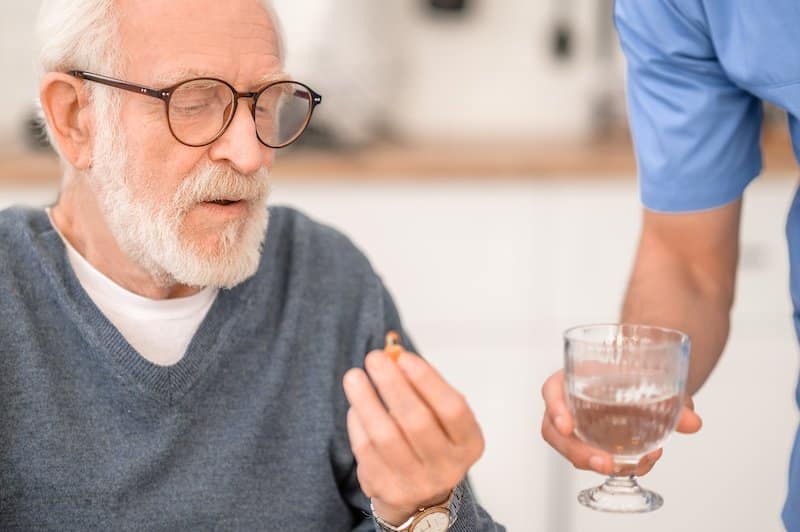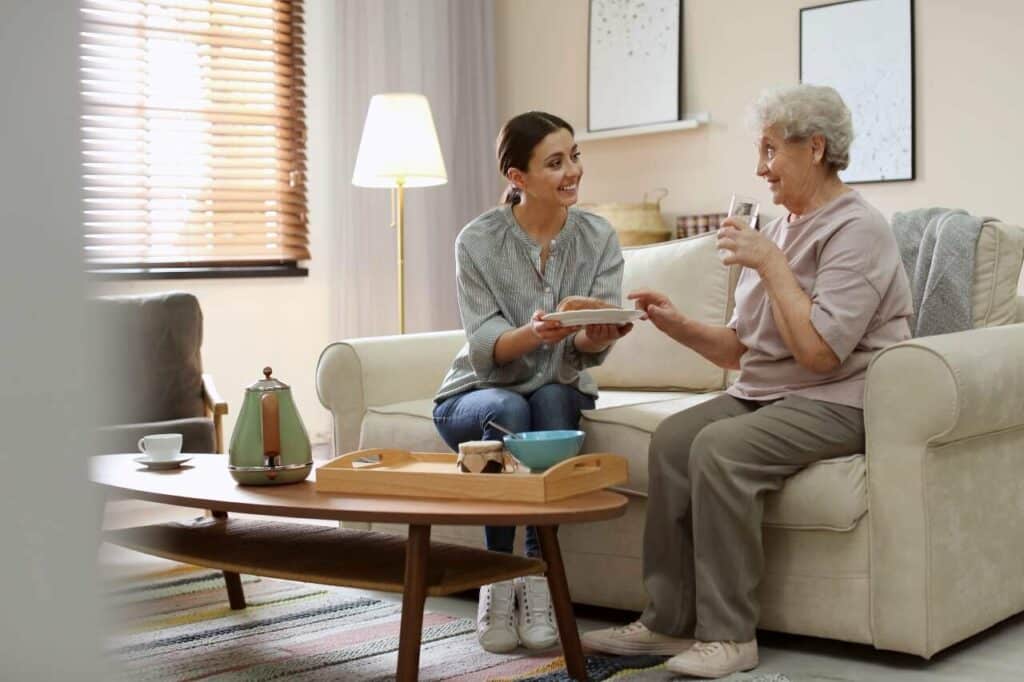Parkinson’s disease is a progressive movement disorder affecting millions worldwide.
It is a neurological condition that primarily affects the part of the brain that controls movement, resulting in tremors, stiffness, and difficulty with coordination and balance. It can also cause non-motor symptoms such as depression, anxiety, and cognitive impairment.
Caring for a loved one with Parkinson’s disease can be challenging and stressful. However, family caregivers can provide the best care possible for their loved ones with the proper knowledge and support.
This article will discuss practical advice for family carers to help them care for their loved ones with Parkinson’s disease.
Educate yourself about Parkinson's disease

The first step in caring for someone with Parkinson’s disease is to educate yourself about the condition.
Parkinson’s disease is a complex and variable condition. It can present in different ways for each person and can be challenging to manage.
Educating yourself about the condition can help you understand how it affects your loved one and how best to support them.
Common symptoms of Parkinson's disease
Some of the common symptoms of Parkinson’s disease include:
- Tremors
- Rigidity or stiffness
- Slowness of movement
- Balance problems or falls
- Non-motor symptoms such as depression, anxiety, and cognitive impairment.
As a caregiver, it is essential to understand how the disease progresses over time and the treatment options available. You can consult with a doctor, attend support groups or educational events, or visit reliable online resources to learn about the disease.
Where to find information about Parkinson's disease.
Parkinson’s UK is an excellent resource for caregivers and people with Parkinson’s disease. They offer a range of educational resources, including a helpline and local support groups across the UK.
Parkinson’s UK also provides information on Parkinson’s disease symptoms, treatment options, and self-care tips for carers and people with Parkinson’s.
As well as Parkinson’s UK, there are other reliable online resources to learn more about Parkinson’s disease, including the NHS and the Michael J. Fox Foundation.
Links to sources of information about Parkinson's disease.
Suggested websites to get you started:
NHS: https://www.nhs.uk/conditions/parkinsons-disease
Parkinson’s UK: https://www.parkinsons.org.uk
Michael J Fox Foundation: https://www.michaeljfox.org/parkinsons-101
Create a care plan.
Creating a care plan is crucial for caring for your loved one with Parkinson’s disease.
A care plan is a written document that outlines your loved one’s needs and the support they require. It can help you ensure that you are providing consistent care and support.
You can create a care plan with the help of a healthcare professional or a Parkinson’s disease specialist.
The elements of a care plan
A care plan will often contain the following information:
- The needs of the individual
- Their medication including names, doses and times
- Mobility support T
- heir daily and weekly routines
- Assistance needed with daily activities
Regularly review and update the care plan as the disease progresses.
When creating a care plan, consider your loved one’s specific needs. For example, you may need to help with medication management, provide mobility support, or assist with daily activities such as bathing, dressing, and cooking.
Consulting with a healthcare professional, such as a Parkinson’s disease specialist or a geriatric care manager, can help you create a care plan tailored to your loved one’s needs.
Encourage exercise and physical therapy.
Exercise and physical therapy can be beneficial for people with Parkinson’s disease. It helps maintain flexibility, strength, and balance, reducing the risk of falls and improving overall quality of life.
Encourage your loved one to engage in regular exercise or physical therapy. Consider enrolling them in a Parkinson’s disease-specific exercise program.
Parkinson's specific exercise programs

Parkinson’s disease-specific exercise programs can be particularly beneficial.
These programs are designed to address the specific needs of people with Parkinson’s disease. As a result, they can improve their physical and mental health. They can decrease stress and also allow your loved one to socialize with others in similar situations.
Some examples of Parkinson’s disease-specific exercise programs include Dance for Parkinson’s, Tai Chi for Parkinson’s, and Parkinson’s Cycling Coach.
Links to Parkinson's specific exercise programs.
Dance for Parkinson’s: https://www.ballet.org.uk/event/dance-parkinsons-classes/#venue-dates
Tai Chi for Parkinson’s near Bath: https://www.taichibodyandmind.co.uk/tai-chi-for-parkinsons/
Manage medications effectively.
Medication is an essential part of managing Parkinson’s disease. It helps to alleviate symptoms and improve quality of life. As a family carer, managing your loved one’s medications is vital. Medication management involves:
- Understanding the medication routine.
- Tracking medication schedules.
- Ensuring your loved one takes their medication on time.
You can also help monitor potential side effects and communicate concerns to their healthcare provider. Some medications used to treat Parkinson’s disease can have side effects such as nausea, dizziness, or confusion.
It is important to keep track of any side effects your loved one experiences and communicate them to their healthcare provider.
In addition, it is essential to understand how certain medications may interact with each other. Make sure to discuss any concerns you have about medication interactions with your loved one’s doctor.

How to manage medication
Some tips for managing medication effectively include:
- Keep a medication list containing each medication’s name, dose, and schedule.
- Use pillboxes or medication reminders to ensure your loved one takes their medication on time.
- Alert your loved one’s healthcare provider if you notice any side effects or changes in their symptoms.
- Don’t change the medication regimen without consulting with a healthcare provider.
Provide emotional support
Parkinson’s disease can be emotionally challenging for the person with the condition and their family carer. Therefore, it is essential to provide emotional support to your loved one by listening to their concerns, validating their feelings, and offering encouragement.
It can be helpful to encourage your loved one to express their emotions and offer them a safe space to do so.
Positive activities
You can also suggest that they participate in healthy activities that they enjoy or that promote relaxation and positive feelings, such as:
- listening to music
- practising mindfulness
- engaging in a creative pursuit such as art
- socialising
- taking trips
It is important to encourage your loved one to continue engaging in activities they enjoy. This can help boost their mood and overall quality of life. You can also offer to participate in these activities with them to provide additional support.
Support groups

Support groups can also be an excellent source of practical help emotional support for carers and people with Parkinson’s disease.
Support groups provide a safe space for individuals to share their experiences and offer mutual support. They can also allow your loved one to connect with others who understand what they are going through.
Parkinson’s UK offers support groups across the UK for people with Parkinson’s disease and their family carers. These groups provide an opportunity to meet others affected by Parkinson’s disease, share experiences, and receive emotional support.
Where to find a local Parkinson's support group
You can find out more about Parkinson’s UK’s support groups here: https://localsupport.parkinsons.org.uk/
Make adaptations to the home.

Examples of home adaptations for Parkinson's disease.
Some adaptations you can make to the home include:
- Installing grab bars in the bathroom and shower to prevent falls
- Removing tripping hazards, such as rugs or clutter
- Rearranging furniture to create more space for mobility aids such as wheelchairs or walkers
- Adding additional lighting to improve visibility in dark areas
- Installing handrails on stairs and steps
- Investing in assistive devices such as lift chairs, shower chairs, or commodes.
Consider working with a physical or occupational therapist to assess your loved one’s home and make additional recommendations for adaptations.
Plan for future care needs
Parkinson’s disease is a progressive condition, meaning care needs will change as the disease progresses.
As a family caregiver, planning for future care needs and making necessary arrangements is essential.
Plan ahead

Researching these options early on is helpful so that you are prepared if and when the time comes.
Consider hiring a home health aide, considering assisted living or nursing home care, or preparing for end-of-life care.
Working with a social worker or care manager can help you navigate the various options and make the best decisions for your loved one’s care needs.
Take care of yourself.

As a family carer, it is easy to become overwhelmed and neglect your self-care needs and well-being.
However, taking care of yourself is essential for providing effective care to your loved one with Parkinson’s disease.
Some self-care tips for protecting your Physical Health and Mental Health.
Make time for self-care activities such as exercise, relaxation, or hobbies. Seek support from family members and friends, or consider the benefits of joining a carer support group.
Support groups can provide an opportunity to connect with other carers who understand what you are going through and offer emotional support.
In addition, consider taking advantage of respite care options. Respite care can reduce stress by providing temporary relief to the primary caregiver, allowing them to take a break and recharge.
Links to information on Parkinson's disease support groups in the UK
Parkinson’s UK offers support groups across the UK. You can find out more here: https://localsupport.parkinsons.org.uk/
Conclusion
In conclusion, caring for a loved one with Parkinson’s disease can be challenging.
Still, with the proper knowledge and support, family caregivers can provide effective care and improve their loved one’s quality of life.
A reminder of the practical steps you can take:
- Educating yourself about the disease
- Creating a care plan
- Encouraging exercise and physical therapy
- Managing medications effectively
- Providing emotional support
- Making adaptations to the home
- Planning for future care needs
- Making self-care of your physical health and mental health a priority.
It is important to remember that caring for a loved one with Parkinson’s disease is a team effort.
Contact healthcare professionals, support groups, and other resources to help you provide the best care possible for your loved one.
With the proper support, you can make a positive difference in your loved one’s life and manage the emotional health and challenges of Parkinson’s disease with confidence.
About Abney & Baker
Abney & Baker Home Care and Support is an award-winning provider of home care services in the UK.
We are dedicated to helping individuals and their families continue living their best lives at home. Our team of highly trained and compassionate caregivers provides a wide range of home care and support services, including personal care, medication management, mobility support, and companionship.
Parkinson's Care and Support
At Abney & Baker, we understand that Parkinson’s disease can be a challenging condition to manage. That’s why we work closely with our clients and their families to develop personalized care plans tailored to their unique needs and preferences.
Our team of carers is highly trained understands the complexities of the condition, including the importance of managing medications, encouraging exercise and physical therapy, and providing emotional support.
Our Ethos
We’re not another large corporate care provider. We’re a family-owned, local company that is dedicated to making life better for our clients, carers and communities. We have 4 simple values that aren’t just words, they guide our decisions and actions every day:
- Do the Right Thing
- Do the Best Job We Can
- Show We Care
- Reflect, Learn & Grow
Our Connection to Parkinson's disease
We absolutely get the challenges of Parkinson’s as we were founded after Ian, our owner, had spent many years managing the care of his father who had Parkinson’s. We want to bring a better, more personal care experience to the whole family.
We believe that everyone deserves to live with dignity and respect, regardless of their condition or circumstances.
That’s why we are committed to providing high-quality, compassionate care to help individuals with Parkinson’s disease and their families live their best lives at home.
With Abney & Baker Home Care and Support, you can rest assured that you and your loved ones are in good hands.
Helping your loved one to continue living independently and confidently in their own home.
By providing a range of support at home, we’re helping many clients across Bath & North East Somerset and West Wiltshire retain their independence and stay in control in the comfort of their own homes.
Remember we’re always here if you want to chat about your care options. Just get in touch:
Call 0333 043 4880 – Email enquiries@abneyandbaker.com – Book a call here














